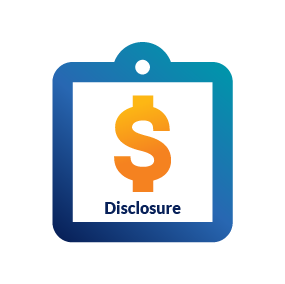Becoming a candidate for the 2024 Local Government by-elections
Berrigan Shire, Cowra Shire, Junee Shire and Lachlan Shire Council (E Ward)
Learn about becoming a candidate, including essential information and your legal obligations, registration to start campaigning, managing campaign finances, navigating the nominations process, creating electoral material, and ensuring compliance with political donation disclosure and electoral expenditure laws.
 Information and obligations Information and obligations |
 Register to start campaigning Register to start campaigning |
 Campaign finances Campaign finances
|
 Nominations Nominations |
 Electoral material (how to vote) Electoral material (how to vote) |
 Disclosures and electoral expenditure Disclosures and electoral expenditure |
Information and obligations
There are strict laws and deadlines that must be followed to become a candidate, relating to:
- being nominated as a candidate and/or forming a group
- registering for the election so you can start campaigning
- producing and distributing electoral material
- accepting political donations and/or incurring electoral expenditure.
You should understand the processes that are involved in becoming a candidate and the laws that apply to how you campaign and raise and spend money.
Candidate information webinar
We conducted a webinar for candidates and other political participants for the by-election.
| Webinar topic | Time / date (s) | Microsoft Teams link |
|---|---|---|
| Candidate information | 11am Thursday, 17 October 2024 |
Join webinar |
Educational resources and forms available to candidates
Election calendars:
- 2024 Berrigan Shire Council by-election
- 2024 Cowra Shire Council by-election
- 2024 Junee Shire Council by-election
- 2024 Lachlan Shire Council (E Ward) by-election
LG.213 Appointment of a scrutineer (PDF 0.2MB)
LG.215 Scrutineer policy (PDF 0.1MB)
LGBY.233A Scrutineer and party/candidate worker guidelines – voting centres (PDF 0.1MB)
LGBY.233B Scrutineer guidelines – scrutiny and counting (PDF 0.1MB)
Support
- Contact us by email
- Phone us during business hours on 1300 022 011
Register to start campaigning
A candidate or group must first be registered for the election before accepting political donations or making payments for electoral expenditure. Political donations include funds raised through fundraisers as well as other monetary and non-monetary gifts. Electoral expenditure is any expenditure that promotes or opposes a political party or the election of a candidate or group of candidates, or influences voting at an election, including by-elections.
Being registered as a candidate or group for the upcoming local government by-elections is a separate process to being nominated to have your name or the group included on the ballot paper.
It is unlawful for unregistered candidates and groups to accept political donations or make payments for electoral expenditure before being nominated. Once registered you will be required to submit disclosure obligations. You should ensure you understand the disclosure and electoral expenditure requirements.
Once an unregistered candidate or group has been validly nominated, they can then lawfully accept political donations and make payments for electoral expenditure for the election.
Registrations for the upcoming local government by-election on Saturday, 23 November 2024 closed at 12 noon on Wednesday, 23 October 2024.
The details of registered candidates are included in the Register of candidates and Register of groups of candidates. Once registered, if your registered details change, you must let us know within 30 days using Funding and disclosure online.
For more information:
- visit Register to start campaigning
- follow our Funding and disclosure online how-to guides.
Campaign finances
Candidates, including those who are members of a group, are responsible for:
- managing their own political donations and electoral expenditure
- operating a campaign account to deposit political donations and make payments for electoral expenditure
- keeping complete and accurate records of their campaign finances including issuing receipts and acknowledgements
- making disclosures of political donations made and received and electoral expenditure incurred.
For a group of candidates, the lead candidate is responsible for the group's political donations and electoral expenditure. Find out about the person responsible for groups of candidates.
Candidates, groups and other election participants are responsible for understanding and complying with the rules in the legislation. These rules are strictly regulated, so you must ensure you are aware of, and understand, your legal obligations.
There are caps on political donations, which means a candidate or group can only accept a certain amount from a person or entity in a financial year. Find out more about the political donation caps.
A candidate or group can only incur a certain amount of electoral expenditure during the capped expenditure period. Find out more about the expenditure caps that apply and the capped expenditure period for the local government elections.
Candidates must open and operate a campaign account before accepting $1,000 or more in political donations or incurring $1,000 or more in electoral expenditure.
Groups of candidates must also open and operate a campaign account before the group accepts $1,000 or more in political donations or incurs $1,000 or more in electoral expenditure.
The campaign account must be used to pay for electoral expenditure and deposit political donations that are used to pay for that expenditure.
Complete and accurate accounting and financial records of political donations and electoral expenditure must be kept by candidates and groups.
A receipt must be issued for any political donation of $1,000 or more, received by candidates, groups, parties or third-party campaigners. An acknowledgement is to be issued in relation to non-monetary donations. The receipt/acknowledgement must include a statement advising the donor of the requirements to disclose the donation to the NSW Electoral Commission.
Find out more about when and how to operate a campaign account and how to keep proper records.
Nomination for the by-election
Nominations have now closed.
To have your name included on a ballot paper, you must have nominated as a candidate for the by-election. Nomination is a separate process to being registered to accept political donations or to make payments for electoral expenditure.
To be nominated as a candidate for the by-election you must have been enrolled to vote in the local government area by 6pm, 14 October 2024.
The nomination period commenced Monday, 14 October and ended at 12 noon Wednesday, 23 October 2024.
Ballot paper draw
The ballot paper draws will be held from 10am Thursday, 24 October at these locations.
| Council | Location | Address |
|---|---|---|
| Berrigan Shire | Berrigan Shire Council | 56 Chanter Street, Berrigan NSW |
| Cowra Shire | Cowra Shire Council | 116 Kendal Street, Cowra NSW |
| Junee Shire | Junee Shire Council | 29 Belmore Street, Junee NSW |
| Lachlan Shire (E Ward) | Lachlan Shire Council | 58-64 Molong Street, Condobolin NSW |
Electoral material (how to vote)
Regulated election period
From Monday, 14 October to 6pm on election day, Saturday, 23 November 2024, all electoral material must meet the requirements of legislation in relation to content, type, placement and distribution of electoral material during the regulated election period.
For information on the legislative requirements for electoral material, please refer to the Candidate handbook.
Registration of electoral material
Electoral material that is to be distributed on election day by political parties, groups, candidates, and any other persons or organisations, must be registered with the NSW Electoral Commission. This includes any material that is handed out or left in a position for collection by the public.
The following types of electoral material do not need to be registered:
-
posters or corflutes displayed on election day or during the pre-poll period
-
any items distributed outside of election day.
From Monday, 14 October to 6pm on election day, Saturday, 23 November 2024, all electoral material must meet the requirements of the legislation.
Electoral material that has been registered for distribution on election day is published on our website.
View our educational videos to find more information on the rules and registration surrounding electoral material.
Preparing your electoral material
EL.228 Creating accessible documents (PDF 0.1MB)
LG.245 Requirements for registration of electoral material (PDF 0.1MB)
Social media templates have been provided for your guidance.
Authorisation of every individual post is not required where no amount has been paid to the platform, provided an overarching authorisation is stated at the top of each social media account, as shown in these examples:
Social media posts, where an amount has been paid to the platform, must include the authorisation in all aspects of the electoral matter as shown in below example:
Paid (boosted) Instagram post (PNG 2MB)
Register your electoral material
Registration of electoral material commenced Wednesday, 23 October 2024 and closes at 5pm on Friday, 15 November 2024. Late applications cannot be accepted.
Applications to register electoral material, along with one copy of each item to be registered must be made with the NSW Electoral Commission by:
- email to candidates@elections.nsw.gov.au
- post to GPO Box 832 Sydney NSW 2001
Note: Applications for registration of electoral material may not be made with the Returning Officer’s office.
Venue projections
Locations and projections for polling places, pre-poll venues and declared institutions can be accessed via each of the links below. These locations are current as at 22 October 2024. Listings will be updated as additional venues are identified.
Ballot paper templates
Ballot paper templates have been provided to assist in the preparation of electoral material (how-to-vote material) distributed for the election event.
When including a sample of the ballot paper on electoral material the details must be an accurate representation of the ballot paper, including:
- the candidates and/or groups appear in the correct order
- the spelling of candidate’s names is accurate
- registered political party names and the inclusion/exclusion of the word 'Independent' are accurate
- the instructions for casting a formal vote are accurate
- partial representations of the ballot paper may be acceptable on your electoral material.
View ballot paper templates:
- Berrigan Councillor ballot paper (PDF 0.4MB)
- Cowra Councillor ballot paper (PDF 0.4MB)
- Junee Councillor Ballot paper (PDF 0.4MB)
Disclosures and electoral expenditure
Election participants must disclose their political donations and electoral expenditure to the NSW Electoral Commission. Disclosures are published on our website.
Candidates and groups at the November 2024 NSW Local Government by-elections must disclose all political donations made and received and all electoral expenditure incurred from the time they are registered or nominated for the election, up to and including, the end of the last relevant disclosure period, ending 30 June 2025.
The following disclosures must be submitted for all candidates and groups participating in the by-elections:
Half-yearly political donations disclosures
Disclosures of political donations made and received must be submitted for the half-yearly disclosure period, 1 July to 31 December 2024 (due by 11 February 2025 (add to calendar).
If you do not make or receive any political donations during the half-yearly periods, you are required to submit a ‘nil’ disclosure.
Annual electoral expenditure disclosure
Disclosures of electoral expenditure incurred between 1 July 2024 to 30 June 2025 (due by 22 September 2025 - add to calendar).
If you do not incur any electoral expenditure during the annual periods, you are required to submit a ‘nil’ disclosure.
Candidates who are elected must submit political donation and annual electoral expenditure disclosures in their capacity as an elected member, for every disclosure period for the term of their appointment. Elected members who are also candidates for re-election must submit the disclosures both as an elected member and as a candidate.
The disclosure requirements are strictly enforced, and it is an offence to fail to submit a disclosure on time.
Disclosures can be submitted using Funding and disclosure online. Using the online portal can reduce the risk of lodging invalid or incomplete disclosures, and you will be able to see the status of your disclosure. If you are unable to use our online platform, you can download, complete and submit a disclosure form. More information about making and submitting disclosures can be found on our website.
